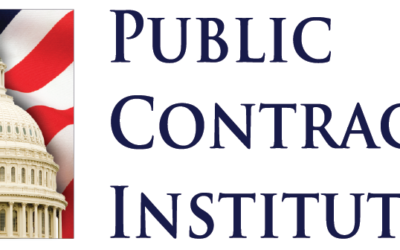A recent case at the Federal Circuit discussed the statutory and regulatory requirements for bundling, in the context of a bid protest that the Navy had improperly bundled. BH Aircraft Co, Inc. v. United States, GE Company, DBA GE Edison Works (“GE”), Fed. Cir. No. 2022-1766 (Jan. 2, 2024). BH aircraft filed a bid protest challenging the inclusion of F414 afterburner liner replacement services within a larger Navy contract. The Court of Federal claims concluded that BH Aircraft had not established a violation of the bundling regulations, and had failed to state a claim upon which relief could be granted.
When Navy issued a solicitation for replacement of the liners, and BH Aircraft filed an agency protest that Navy had impermissibly bunded the afterburner liner contract. The Contracting officer did not concur, and also found that BH was not a qualified bidder (required by the solicitation)—something that BH conceded when it filed its protest at the Court of Federal Claims (“COFC”). The COFC dismissed the protest because BH was not qualified to provide the parts, and because BH never alleged that there was another small contract for afterburner liners that was being bundled into this solicitation. Therefore the COFC found that BH failed to state a claim on which relief could be granted.
Here are the relevant statutes and regulations governing this bundling protest:
Contract bundling: In complying with the statement of congressional policy expressed in subsection (a), relating to fostering the participation of small business concerns in the contracting opportunities of the Government, each Federal agency, to the maximum extent practicable, shall—
[]
(3)avoid unnecessary and unjustified bundling of contract requirements that precludes small business participation in procurements as prime contractors. 15 U.S.C. § 631(j)(3)
* * *
Definitions of bundling of contract requirements and related terms: In this chapter:
(1)Bundled contract:The term “bundled contract” means a contract that is entered into to meet requirements that are consolidated in a bundling of contract requirements.
(2)Bundling of contract requirements:The term “bundling of contract requirements” means consolidating 2 or more procurement requirements for goods or services previously provided or performed under separate smaller contracts into a solicitation of offers for a single contract that is likely to be unsuitable for award to a small-business concern due to—
(A)the diversity, size, or specialized nature of the elements of the performance specified;
(B)the aggregate dollar value of the anticipated award;
(C)the geographical dispersion of the contract performance sites; or
(D)any combination of the factors described in subparagraphs (A), (B), and (C).
(3)Separate smaller contract: The term “separate smaller contract”, with respect to a bundling of contract requirements, means a contract that has been performed by 1 or more small business concerns or was suitable for award to 1 or more small business concerns.15 U.S.C. § 632(o)(2)
* * *
Bundling—(1) Means a subset of consolidation that combines two or more requirements for supplies or services, previously provided or performed under separate smaller contracts (see paragraph (2) of this definition), into a solicitation for a single contract, a multiple-award contract, or a task or delivery order that is likely to be unsuitable for award to a small business concern (even if it is suitable for award to a small business with a Small Business Teaming Arrangement) due to—(i) The diversity, size, or specialized nature of the elements of the performance specified;(ii) The aggregate dollar value of the anticipated award;(iii) The geographical dispersion of the contract performance sites; or(iv) Any combination of the factors described in paragraphs (1)(i), (ii), and (iii) of this definition.
(2) “Separate smaller contract” as used in this definition, means a contract that has been performed by one or more small business concerns or that was suitable for award to one or more small business concerns. FAR 2.101
The court of Appeals denied the protest, noting that bundling means “consolidating 2 or move procurement requirements previously provided or performed under small contract that is likely to be unsuitable for small business.” This definition is in Part 15 of the U.S.C. (above) and is also included in the Federal Acquisition Regulation (“FAR). BH’s complaint failed to state a claim because BH had not shown that two or more separate smaller contracts had been bundled together to form the current (protested) solicitation.
Takeaway – Bundling
When you protest something based on a definition in the US Code or the FAR or both, be sure to allege a specific violation of the statutes or regulations. Your chances of winning will improve
For other helpful suggestions on government contracting, visit:
Richard D. Lieberman’s FAR Consulting & Training at https://www.richarddlieberman.com/, and Mistakes in Government Contracting at https://richarddlieberman.wixsite.com/mistakes.
Learn more about Bids & Proposals by reading these articles:
- Converting a Procurement from Sealed Bidding to Competitive Proposals
- No Clarifications Required
- IS A SOLICITATION REQUIREMENT FOR FINANCIAL LIQUIDITY AND SOLVENCY UNDULY RESTRICTIVE?
- Even for Fraud Allegations, GAO Has No Jurisdiction Over Protests Of Other Transaction Authority Procurements
- Is A Partially Performed Contract Recent
- Incomplete Attachment in Proposal
What is the Public Contracting Institute?
The Public Contracting Institute is an instructor-owned government contracts training company. PCI offers regular live virtual trainings on government contracts topics, an innovative eLearning program, and offer customized training to government contractors and agencies.



